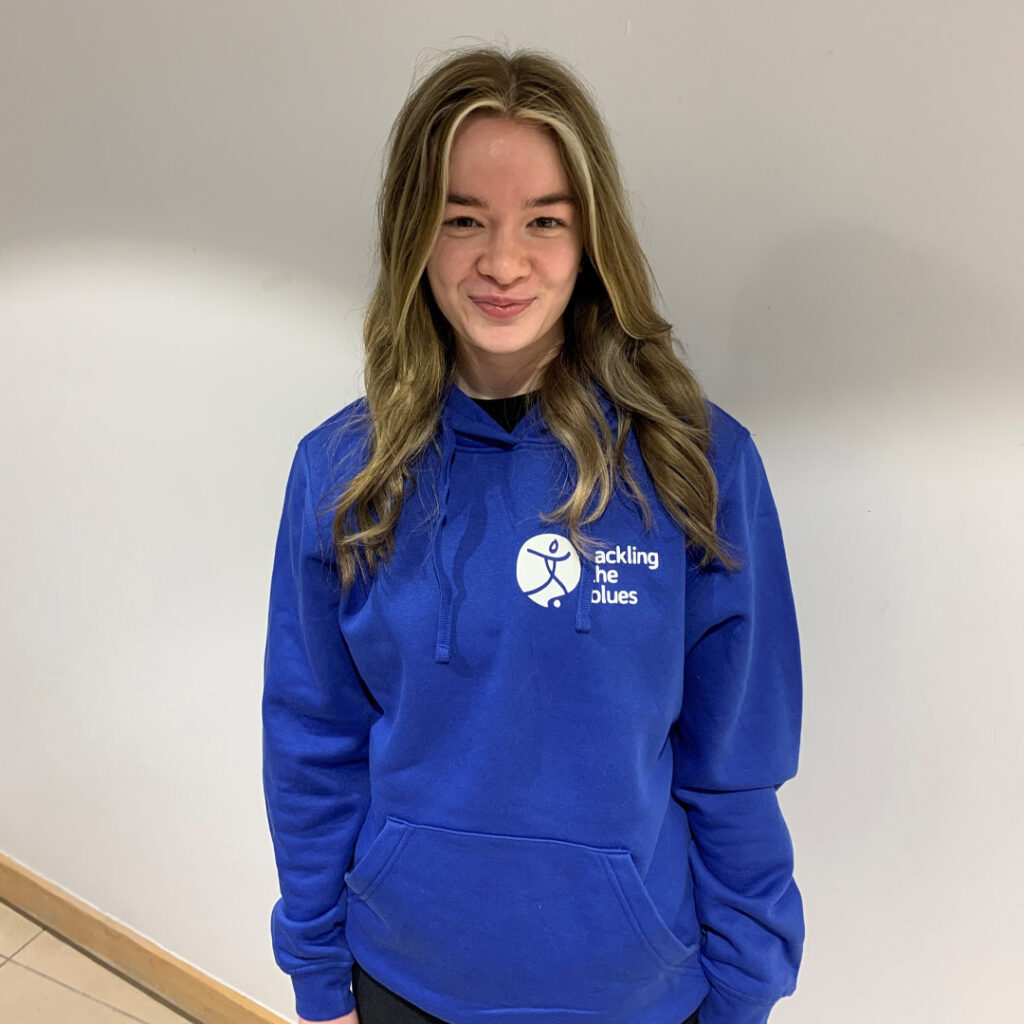
Student Mentor, Mia Kennedy, currently studies BSc (Hons) Child & Adolescent Mental Health & Wellbeing at Edge Hill University. Read her case study as to why she became a Tackling the Blues mentor.
Why did you choose to become a TtB mentor?
I chose to be a TtB mentor because of the relation between physical activity and mental health, and how overall physical activity can benefit mental health. As I’m on the CAMHS course, it was interesting to see what I could learn from lectures and how I could educate children mental health.
What did you enjoy about being a TtB mentor?
I enjoy seeing the children and young people interacting with sessions about different mental health conditions, finding out more about the conditions and their signs and symptoms, and seeing students’ confidence develop. Mentoring with TtB has allowed me to feel like a positive role model for mental health. It has allowed me to be there for children and young people to speak to.
Has TtB contributed to your own mental health literacy?
On the CAMHS course, I am learning about different mental health conditions alongside TtB, which does allow for my own knowledge related to children and young people to be expanded. I get to see how they react to learning about a variety of mental health conditions. Knowing the signs and symptoms has grown my knowledge of support and what coping mechanisms work best for the students.
Do you think TtB has contributed towards employability?
Yes: the opportunities and experiences provided by TtB are life skills. Being able to work within a school setting allows me to understand how children and young people work within different settings, allowing me to understand what works best for children and young people within school settings. My confidence has grown, including my understanding of being a mentor, as well as how I can support children and young peoples’ mental health in the future.
What have you learned during your time as a mentor?
I have learned many things, including things about myself. I have learnt how to provide support to the children and young people. Being a mentor has expanded my own knowledge, allowing me to recognise signs and symptoms and what support works best for each student.
Have you been involved in any of the TtB research?
I have been involved within the distribution of the work booklets and questionnaires, which I helped the children and young people to complete. I have just started helping out with the data side.
Would you recommend TtB to other students?
Yes: TtB offers a variety of different opportunities and experiences which are life skills that can be used in the future. This is my second year being a mentor, and I plan to return for a third-year. The groups are classroom sized, meaning that standing up and presenting a slide or an activity in front of the student is not too off-putting. The experience you gain being a mentor allows you to gain life skills and real-life skills by being in real-life situations.
What are your plans after TtB?
As I am only in my second year of study, I plan to come back to be a mentor for my third year of study. After I graduate, I plan to use my degree and skills to go on and do a masters related to sport and mental health.
